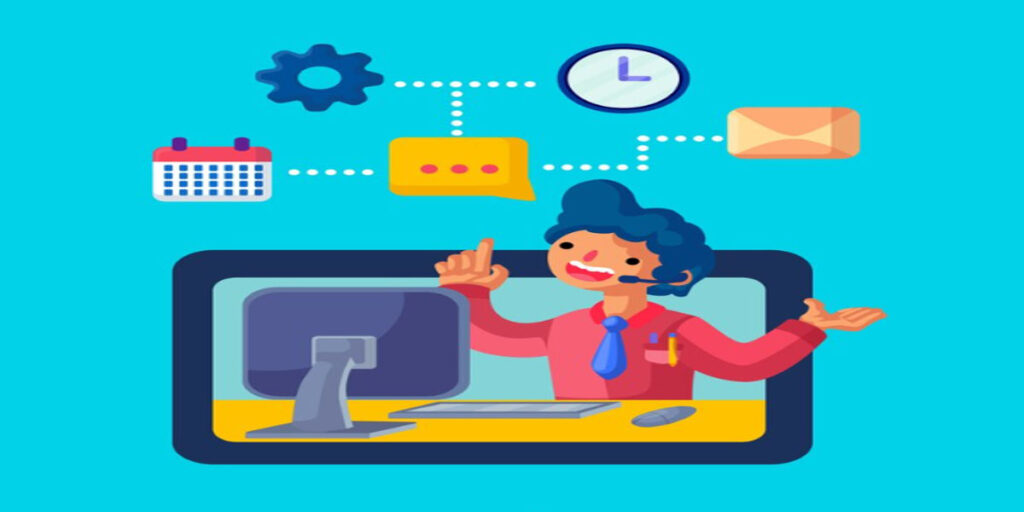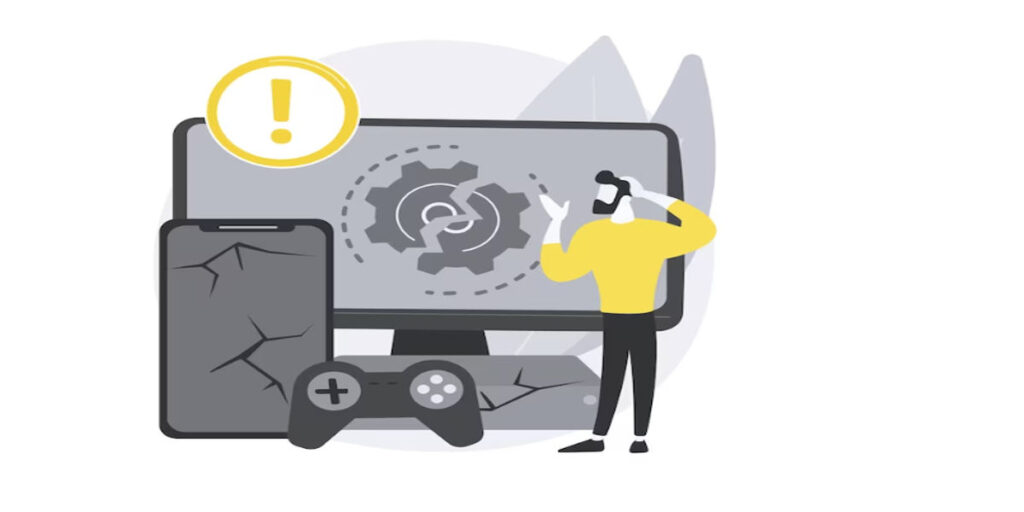The current scenario is defined by an unbreakable connection between people and technology. In defining the relationship between technology and mental fitness, it will become apparent that this connection is elaborate and multifaceted. Technology has emerged as an imperative part of our daily workouts, impacting diverse factors of our lives, including our mental well-being.
The steady connectivity facilitated through smartphones, social media platforms, and digital verbal exchange gear has revolutionized how we engage, share facts, and perceive the world. While those advancements offer exceptional comfort and accessibility, they also usher in demanding situations that can affect our mental fitness.
We are about to begin this exploration. It’s critical to recognize that the impact of generations on mental fitness isn’t universally wonderful or poor. Instead, it manifests in a spectrum of effects, prompted by factors such as usage styles, character vulnerabilities, and the particular nature of technological engagement.
Exploring the Dual Nature of Technology’s Impact

The dual nature of technology’s effect on mental fitness is a critical subject matter in our analysis. On one hand, generation serves as a powerful device for connectivity, fostering social relationships, and supplying entry to precious assets for intellectual fitness improvement. This nice side of the era showcases its capacity as a force for precision.
Conversely, the pervasive use of technology can cause poor results, along with impulsive behaviors, disrupted sleep styles, and the emergence of network-associated disorders. Recognizing this dichotomy is crucial for growing a nuanced knowledge of the way the era affects our intellectual well-being.
As we navigate through the intricacies of this courting, we aim to shed light on each of the superb and poor dimensions of the era’s impact on intellectual fitness.
Positive Aspects of Technology on Mental Health
- Connectivity and Social Support
One of the terrific high-quality factors of an era of mental fitness is its function in fostering connectivity and social guidance. Digital systems offer opportunities for people to connect with buddies and family and guide networks, no matter geographical distances. Social media, messaging apps, and video calls enable real-time verbal exchange, lowering feelings of isolation and promoting an experience of belonging.
The accessibility of online communities focused on intellectual health advocacy and help, in addition, enhances the high-quality effect of the era. Individuals facing comparable challenges can find solace, proportion stories, and get entry to precious sources. The feeling of community and mutual understanding facilitated with the aid of generations contributes to emotional well-being and decreases the stigma surrounding intellectual health problems.
- Tools for Mental Health Improvement
Technology serves as a valuable tool for intellectual fitness development, presenting a wide variety of programs and assets. Mental health apps provide a convenient right of entry to self-assist tools, mindfulness physical activities, and mood tracking, empowering people to actively manage their well-being. These digital devices offer customized interventions, allowing users to address particular intellectual health issues at their own pace.
Virtual therapy structures and online counseling services are developed to get admission to an expert intellectual health guide. The convenience of far-flung periods reduces obstacles, including journey constraints, making therapy more available to a variety of populations. The integration of generation into therapeutic practices complements the effectiveness of interventions, providing tailor-made answers to people seeking intellectual health assistance.
- Positive Applications of Technology in Counseling
Technology’s high-quality impact extends to the sector of counseling, where revolutionary methods beautify the healing system. Virtual truth (VR) remedies present immersive studies for people handling phobias, PTSD, or tension problems. Teletherapy systems permit steady and private video periods, ensuring continuity of care and accessibility for those with physical or geographical obstacles.
The utilization of synthetic intelligence (AI) in mental fitness screenings and checks streamlines the identification of potential issues. AI algorithms can examine patterns in language and behavior, assisting in early detection and intervention. These technological advancements contribute to the performance and effectiveness of mental health counseling, demonstrating the fantastic capacity of the generation to promote mental well-being.
Negative Effects of Technology on Mental Health
- Impulsivity, Impatience, and Mental Well-Being
One of the destructive consequences of technology on mental health revolves around the cultivation of impulsivity and impatience in individuals. The immediate access to information, quick responses in the digital conversation, and steady stimulation furnished by numerous apps contribute to a tradition of immediacy. These surroundings can impact mental well-being by lowering interest spans, promoting impulsive choice-making, and fostering an experience of restlessness.
Continuous exposure to fast stimuli can also contribute to heightened stress stages as individuals locate themselves navigating a quick-paced digital landscape. Recognizing the signs and symptoms of impulsive conduct and its correlation with technology utilization is important in addressing its impact on mental fitness. Implementing strategies, along with mindfulness practices and intentional breaks from generation to generation, can help mitigate these negative outcomes.

- Sleep Disruption Due to Technology Use
The incidence of an era in our everyday lives has added a large assignment to one of the essential factors of mental health: sleep. The use of digital devices, in particular before bedtime, has been linked to disruptions in circadian rhythms and sleep patterns. The emitted blue mild from displays suppresses the production of melatonin, a hormone essential for regulating sleep-wake cycles.
Sleep troubles as a result of era use can cause fatigue, irritability, and diminished cognitive overall performance. Addressing this aspect requires an aware effort to set up wholesome sleep hygiene practices, consisting of implementing display screen curfews, creating a conducive sleep environment, and fostering an aware bedtime.
- Internet Addiction and its Consequences
Internet addiction, characterized by immoderate and compulsive internet use, is an identified subject with extraordinary effects on mental health. The consistent connectivity supplied via smartphones and other devices can result in a dependency on digital interactions, negatively impacting actual-world relationships and usual functioning.
Individuals experiencing net addiction may also face challenges in dealing with their time successfully, mainly forgetting about responsibilities, social isolation, and heightened strain ranges. Recognizing the symptoms of net dependence and seeking professional aid are vital steps in mitigating its results and creating a healthier generation.

- The Link Between Social Media and Mental Health Issues
The pervasive use of social media platforms has delivered approximately a unique set of demanding situations for mental fitness. Comparisons, cyberbullying, and the curated nature of social media profiles can contribute to feelings of inadequacy, anxiety, and melancholy. The constant publicity of idealized representations of others’ lives can also foster unrealistic expectations and negatively affect self-esteem.
Understanding the hyperlink between social media use and intellectual health problems is critical for cultivating a balanced and conscious technique for digital engagement. Encouraging virtual literacy, promoting fantastic online interactions, and putting limitations on social media usage can help mitigate the detrimental results and foster a more healthy online environment.
Specific Risks of Prolonged Technology Use
- Negative Mental Health Effects
Prolonged technology use poses particular dangers to mental health, with more than a few terrible effects. The regular publicity of screens and virtual stimuli has been associated with increased degrees of stress, tension, and melancholy. The digital world’s needs and pressures can create a feeling of weightlessness, exacerbating pre-existing mental health situations.
Understanding the bad mental fitness outcomes calls for acknowledging the impact of digital fatigue, data overload, and the capacity for social comparison. These elements contribute to a sense of disconnection from the truth and might hinder individuals from engaging in significant offline reporting. Recognizing the signs and symptoms of negative mental fitness consequences is essential for intervention and fostering a more healthy courtship with the next generation.
- Negative Physical Impacts
In addition to intellectual health worries, extended-era use can exert terrible physical effects on people. Sedentary behavior related to extended screen time contributes to quite a few health issues, including musculoskeletal issues, weight problems, and cardiovascular risks. The prevalence of “tech neck” and different posture-associated issues highlights the bodily toll of extended engagement with virtual gadgets.
Mitigating negative bodily effects involves incorporating ordinary breaks, adopting ergonomic practices, and retaining stability among display screen time and physical hobbies. Awareness of the potential health risks related to prolonged generational use is critical for people to make knowledgeable decisions about their virtual conduct.
- Understanding the Risks of Heavy Technology Use
Heavy generation use incorporates a vast spectrum of activities, from excessive display screen time to dependency on virtual structures. Understanding the risks related to heavy technology use requires a nuanced examination of its effect on various aspects of life. From strained interpersonal relationships to compromised mental and bodily well-being, heavy technology use can contribute to more than a few demanding situations.
Acknowledging the dangers involves assessing one’s digital behavior, recognizing patterns of dependency, and being conscious of the cumulative impact on common fitness. With information on the specific risks associated with heavy generation use, people can take proactive steps to mitigate these demanding situations and foster healthier stability between their virtual and offline lives.
Factors Contributing to Adverse Effects

- Technology Addiction: Recognizing and Addressing the Issue
One good aspect contributing to destructive results for intellectual health is technology dependence. This phenomenon, frequently referred to as net addiction or digital dependency, involves compulsive and excessive use of the era to the detriment of different aspects of lifestyles. Recognizing the signs and symptoms of era dependency is important in addressing its impact on intellectual well-being.
Common signs of technology dependency consist of an inability to govern usage, overlooking responsibilities, and withdrawal signs while not using virtual gadgets. Individuals experiencing generational addiction may benefit from looking for expert help, carrying out virtual detoxes, and imposing techniques to establish a healthier relationship with the era.
- Technological Determinism: A Cautionary Perspective
Technological determinism, the perception that an era shapes and impacts societal and individual behavior, can contribute to destructive outcomes for mental health. Embracing an era without thinking about its potential results may result in a passive recognition of its impact. It is crucial to adopt a cautionary perspective, acknowledging that the effect of technology is not predetermined and may be fashioned by conscious choices.
Understanding technological determinism entails spotting the importance of character organization in figuring out how generations is incorporated into everyday life. By promoting attention and critical thinking about the function of the era, individuals could make knowledgeable selections to mitigate adverse effects on their mental well-being. Taking a proactive stance empowers individuals to form their dating with the generation instead of being passively fashioned by it.
Strategies for Mitigating Risks
- Tips for Balancing Connection and Screen Time
Mitigating the dangers related to generational use entails adopting strategies for balancing connection and display time. Setting intentional limits on tool usage, particularly earlier than bedtime, can undoubtedly impact sleep quality. Creating specified tech-loose zones and instances within the home fosters opportunities for genuine human connection and decreases the chance of virtual fatigue.
Implementing aware practices, together with taking regular breaks during prolonged display screen sessions, promotes focus on 1’s virtual habits. Encouraging face-to-face interactions and tasty outdoor activities additionally contribute to a more fit balance between the blessings of technology and the desire for actual international reviews.
- Understanding and Aligning with Circadian Rhythms
Acknowledging the impact of generation on circadian rhythms is essential for mitigating sleep-related dangers. Establishing a regular sleep agenda and fending off display publicity a minimum of an hour earlier than bedtime can help align with herbal circadian styles. An embracing era that gives features like blue light filters all through night hours can further support healthy sleep-wake cycles.
Educating individuals on the significance of circadian rhythms and their connection to their usual well-being empowers them to make informed decisions about their technology use. By aligning with herbal biological rhythms, individuals can optimize their mental and bodily fitness while nevertheless cashing in on technological improvements.
- Seeking Support for a Healthier Relationship with Social Media
For those grappling with the poor effect of social media on intellectual fitness, seeking aid is a vital step. Recognizing the potential damage and taking energetic measures to curate a superb online environment can extensively contribute to advanced well-being. This can also include unfollowing bills that evoke terrible feelings, setting deadlines for social media utilization, and collaborating on digital detox challenges.
Support organizations and online communities dedicated to fostering a more fit courting with social media provide precious sources. Sharing studies, insights, and coping strategies within these communities creates an experience of harmony and empowers individuals to navigate the digital panorama with more mindfulness and resilience.
Conclusion
In conclusion, the elaborate relationship between technology and mental fitness necessitates a nuanced understanding of its multifaceted outcomes. Throughout this exploration, we’ve delved into each of the high-quality and terrible dimensions of the era’s impact, recognizing its position as a double-edged sword. From fostering connectivity and imparting intellectual health tools to contributing to impulsivity and sleep disruption, technology’s effects are various and considerable.
Understanding the nuanced impact entails acknowledging the various risks related to extended-generation use, consisting of each terrible mental fitness result and bodily implications. The reputation of era addiction and the cautionary perspective of technological determinism, in addition, contribute to a complete grasp of the dynamics at play.


